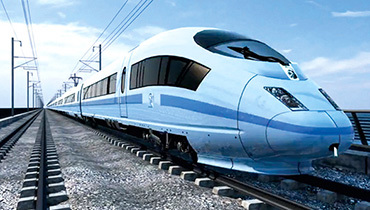

CIHT has provided a written response to the independent review of the High Speed 2 (HS2) project.
Join other savvy professionals just like you at CIHT. We are committed to fulfilling your professional development needs throughout your career

CIHT wrote to Douglas Oakervee, the chair of the independent review of HS2 that is looking at whether and how the UK Government should proceed with HS2. The independently-led government review has been established to allow the government to make properly-informed decisions on the future of Phases 1 and 2 of the project.
The details of the letter submitted by CIHT are below:
CIHT have maintained a consistent position in support of the HS2 project as we believe it has clear benefits for capacity, connectivity and the economy if delivered in an appropriate manner. It however is clear that HS2 can prove a divisive issue and more needs to be done to demonstrate the benefits that the project could deliver.
CIHT supports the rapid delivery of the enhanced capacity and connectivity that high-speed rail will bring to the United Kingdom’s north-south rail network.
That capacity, with benefits for users of both the rail and road networks, including freight movements, together with the broader economic benefits anticipated in terms of connectivity and job creation needs to be delivered to a robust timetable, supported by clear justification.
It is evident that the justification for HS2 has been called into question particularly in relation to the increasing costs and the debate around the benefits of improving the links between the north and the south of England.
CIHT had previously outlined a series of benefits in relation to HS2 that could form the basis of rebalancing the current argument. Whilst we consider these points still relevant, the review team might be interested in confirming the estimates and taking account of updated information. These benefits included:
In discussions, CIHT identified a series of questions that if responded to could help to change the narrative in relation to HS2:
Certainty of timing and clear information about the benefits of the project will help to ensure the support of more stakeholders and that the right resources can be put in place to ensure delivery. Uncertainty, either in terms of the project’s aims or timetable, will lead to benefits not being realised, costs increasing, and difficulties in addressing objections. CIHT will support work to remove that uncertainty.
CIHT look forward to continuing to be involved in these discussions and are happy to discuss any of the associated points raised here in more detail.
For a full copy of the letter please see here
(a) According to a report in 2019 by Network Rail this case still exists:
(b) See HS2
(c) Based on a study carried out by Arup and Volterra in 2011 for the Core Cities Group
(d) These estimates were from 2011 but according to recent data the number of people standing at stations has not improved
(e) This position does not appear to have changed. According to a House of Commons Parliamentary briefing from 2016 Rhodes, C (2016) ‘Infrastructure policies and investment ‘House of Commons Library where it was noted: ‘The OECD believes the UK has under-invested in its infrastructure’
Join other savvy professionals just like you at CIHT. We are committed to fulfilling your professional development needs throughout your career
{{item.AuthorName}} {{item.AuthorName}} says on {{item.DateFormattedString}}: